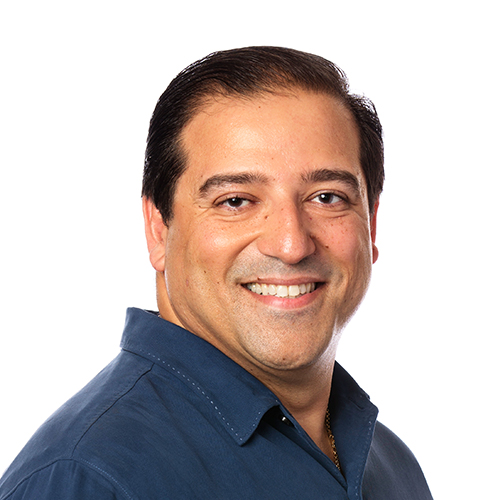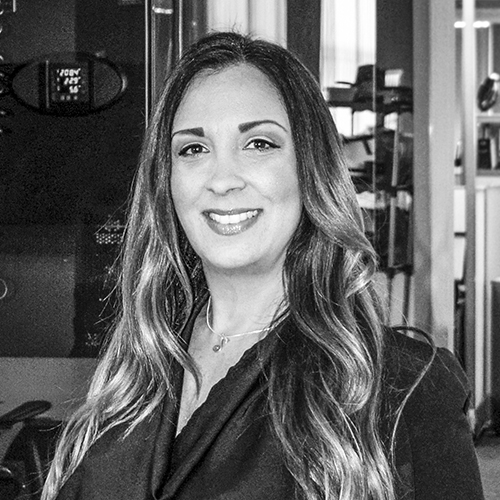|
Getting your Trinity Audio player ready...
|
When Cristina Contreras moved to New York City from the Dominican Republic, she didn’t speak English, she didn’t know the culture, and she didn’t have the support of her extended family. To make matters worse, she had to navigate the daunting world of a new high school.
But Contreras was not one to balk at a challenge. She kept her focus on the future that she saw for herself. “I always knew that I wanted to accomplish something,” she says. “I wasn’t going to let all these challenges dictate what I needed to do or not to do or what I could accomplish.”
Contreras saw the first glimpse of her future when she was put in a trial group therapy program for struggling students. She loved the program and was inspired by the therapist who ran it. “Her job to me seemed like the dream job,” she says. “Working with people and helping people—what else do you want?”
After earning her bachelor’s degree in social work, Contreras began her career as a caseworker at NYC Health + Hospitals/Coney Island, a 371-bed hospital in one of the United States’s largest public healthcare systems. “I really loved the environment in the hospital,” she says. “I had good resources, I had good people helping me and teaching me, and I was able to make a difference for a lot of patients.”
But Contreras wanted to make an even broader impact. After completing her master’s in social work, she transitioned to work in healthcare administration.
Contreras then climbed the ladder within NYC Health + Hospitals, and in 2016, she became chief operations officer at NYC Health + Hospitals/North Central Bronx. She is no longer working in patient care, but her background as a social worker continues to influence the way she leads her team. “You don’t have to know everybody’s job, but you have to know how to lead, help, and support them,” she says. “I can relate well to people, and I think that gives me an advantage.”
Her background also gives her an understanding of the issues that patients face outside of the hospital that might impact the care they need. To address these issues, she and her team work with the community to expand their offerings and to invite patients to be partners in their own care. “We try to reach and engage patients in their community, where they live and work,” she says. “We bring hospital resources to the community, instead of waiting for them to come to us.”
Contreras and her team attend community events where they can hear community members’ concerns firsthand. When a middle school invited the hospital to participate in its annual back-to-school event, Contreras took the opportunity to share information at a display table and to gather feedback from fellow attendees.
“We try to reach and engage patients in their community, where they live and work. We bring hospital resources to the community, instead of waiting for them to come to us.”
One parent told Contreras about the nutritionist who helped her to create a dietary plan for her family. “The mother explained to me how implementing the dietary plan at home really helped her family learn to make healthier food choices,” she says. “I asked her if she felt other families in the school would benefit from this service. Her answer was a resounding yes; it was then that I decided to bring healthy eating education to the community.”
Based on that community member’s feedback, a team of nurses, health educators, dietitians, and health insurance representatives coordinated with community partners to bring nutrition education out of the hospital and into the Norwood section of the Bronx. Two years later, the community nutrition program continues to thrive and offer a service that Contreras knows the community can use.
Community feedback also helps shape existing offerings, such as the hours available for primary care service. Originally, the only nonwork-hour appointments the hospital offered were in the evening, but many patients who cared for their families after work weren’t able to make those appointments.
“We expanded our primary care services into the evenings, weekends, and early morning hours to make it convenient for our diverse patient population so they can plan their healthcare visit without interfering with their work and family lives,” Contreras says. “That said, simply expanding hours doesn’t mean you’re tailoring to the needs of everyone in the community. It works for some, but not all.”
To reach even more patients, Contreras challenged the ambulatory care leadership team to increase access across all service lines. In response, providers and administrators created dedicated emergency department slots to connect patients to ambulatory care services and avoid emergency room revisits.
Throughout her career, Contreras has met many people who told her that because of her background, she couldn’t accomplish all that she has. And yet, she has always found a way to advance her goals. “We always find people who give us encouragement, but we find more people who try to discourage us from doing the right thing,” she says. “You have to know what you want and mute the negative voices trying to tell you that you can’t accomplish something—because you can; everybody can.”
As with the patients who come into the hospital, there is more to Contreras’s story than meets the eye. “When a patient comes to the hospital, we’re just dealing with the current health problem,” she says. “It’s important to also take into consideration the whole person and the socioeconomic factors that may impact their care. Everything makes a difference in the care that we provide.”
“When patients and families come to North Central Bronx Hospital, they expect the best doctors, the best nurses, and the best care. Cristina Contreras has helped to transform the patient experience, by working hard to improve the health of the community. Her leadership and spirit fosters collaboration and a true compassion for growing NCB’s culture of caring and service. We support and congratulate her in this recognition of her efforts.” —Jeff Gontarek, Regional Director, Crothall Healthcare

